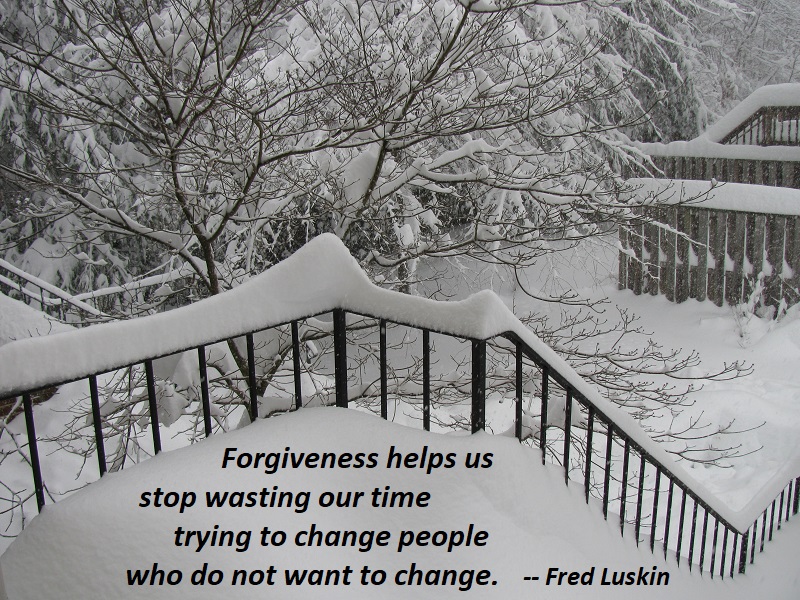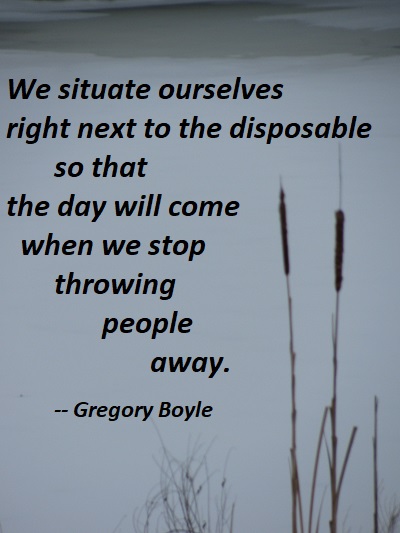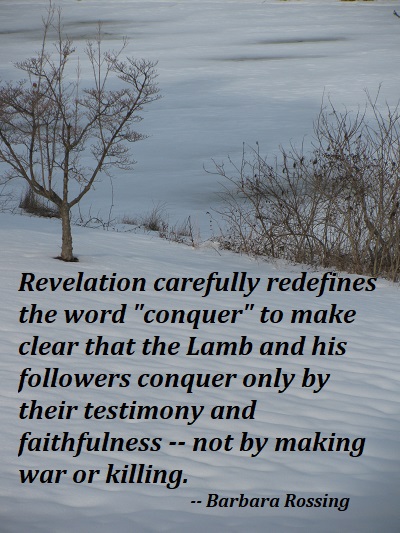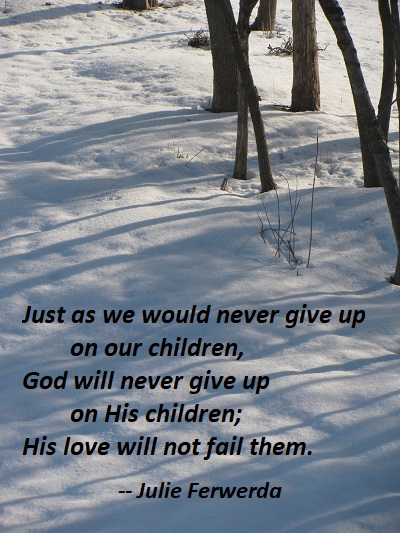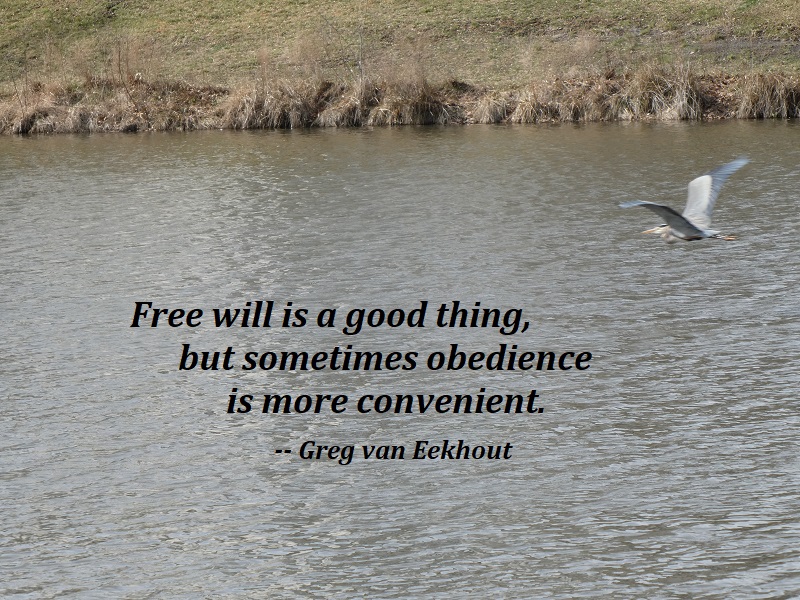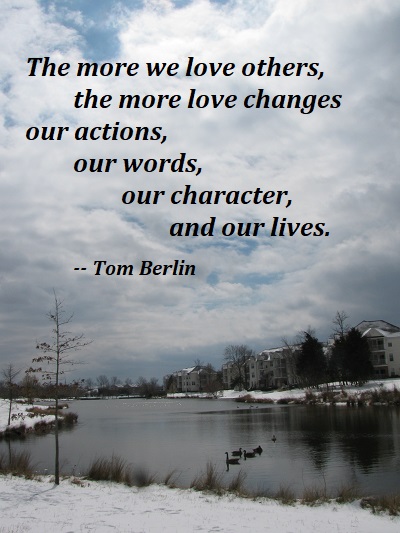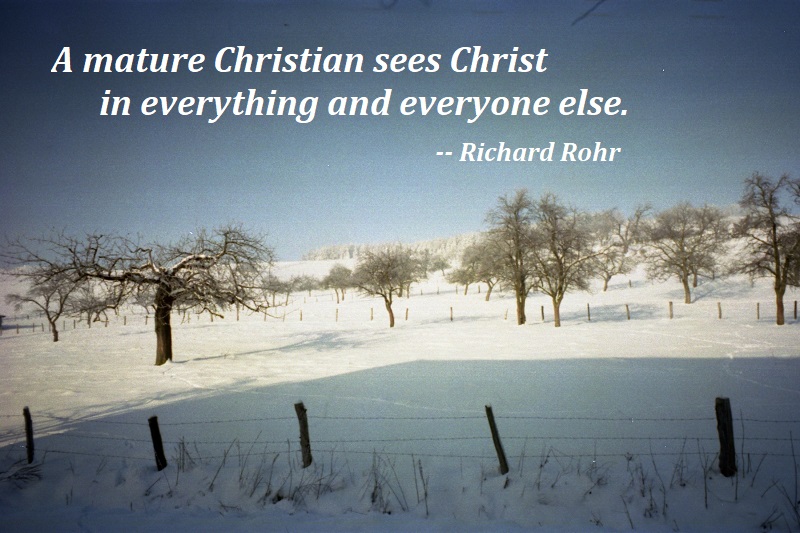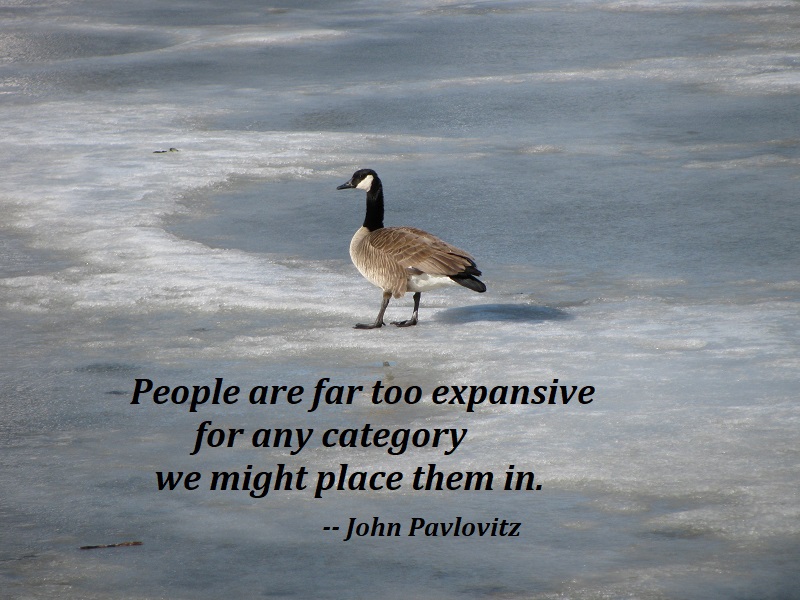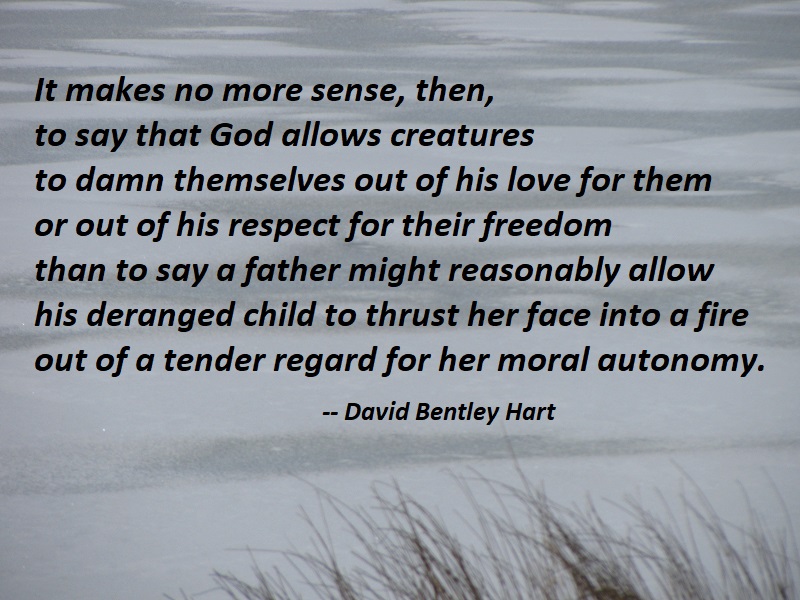Stop Trying to Change People
The upset we feel when others do not change in the way we want them to is what forgiveness resolves. Forgiveness helps us stop wasting our time trying to change people who do not want to change. Forgiveness allows us to regain control of our lives as we try less to control the lives of others. Forgiveness allows us to manage the effect of other people’s hurtful actions in our lives….
We can never forgive something as vague as a person’s traits, temperament, or personality. At best, we can forgive specific behavior that we hypothesize reveals the person’s character. This is an important distinction, and one that can save us a lot of pain. We can see behavior, but we can only guess at character. Criticizing someone’s character is not the best way to spend our limited resources of energy and time. To forgive, we need to focus on the behaviors, such as harsh speech and unkind action, that were at variance with what we wanted.
— Fred Luskin, Forgive for Good, p. 160-161
Photo: Centreville, Virginia, February 6, 2010
